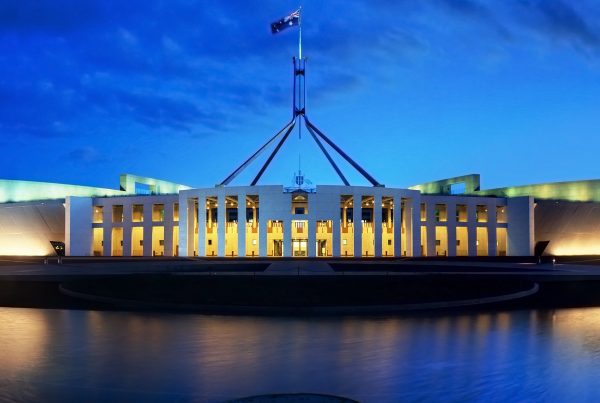We can’t escape the importance of the US energy security issues and policies on Australia. It impacts on our environmental sustainability, social sustainability, and financial sustainability. Below is a good article by a respected author, Michael Levi, that replaces the confusing noise of the 2012 electioneering with a review of the facts. It summarises the really interesting factors that influence the supply and cost of energy, and gives us an insight into the headaches they create for policy makers everywhere.
The Driller in Chief
President Obama’s critics say he’s been a disaster for the energy industry. But the numbers tell a different story.
BY MICHAEL LEVI | MARCH 1, 2012

It was a strange scene even by the standards of an odd primary season. Rick Santorum, fresh off a narrow loss in Michigan, started waving about a hunk of jet-black rock during his concession speech on Tuesday night, Feb 28. “Yeah, this is oil,” he explained. “Oil. Out of rock. Shale.” But not under this American president. Like his fellow candidates for the Republican presidential nomination, as well as most of the fossil fuel industry, Santorum is convinced that Barack Obama is out to kill oil and natural gas. “We have a president who says no,” he warned. “We need a president who says yes to the American people and energy production!”
Let’s start with the statistics. After falling every year from 1991 through 2008, U.S. oil production has climbed for three years in a row. U.S. oil imports started to drop in 2005 under President George W. Bush, but Obama’s policies haven’t stopped the trend. Last March, Obama announced a target of cutting oil imports by a third by 2020; less than a year later, the United States is already more than halfway there. Natural gas production is also surging. The United States hit rock bottom in 2006, at which point the shale gas revolutionbegan to re-energize the sector. That boom has continued since Obama took office. It’s tough, in other words, to square claims that Obama is destroying American oil and gas with the record production numbers that the industry is posting year after year.
Statistics, of course, can be misleading. Most of the groundwork for what’s happening now was laid before Obama took office — and markets, not policymakers, can take most of the credit for the oil and gas sector’s strong performance. Critics will argue that because the energy business moves slowly, many of the biggest consequences of the president’s policies have yet to be felt. What might surprise them, though, is that this is where Obama could have the best story to tell.
Take the battle over fracking, a controversial technique used to unlock massive deposits of oil and natural gas in underground rock formations that has come from nowhere to become one of the most critical features of the U.S. energy scene. Santorum and his acolytes are convinced that tough regulation will kill this key driver of the U.S. energy boom. But if the Deepwater Horizon oil spillin the Gulf of Mexico taught us one lesson, it’s that lax regulation — in enabling industry mistakes to gut public support and confidence — can be far more damaging. A spate of dumb and preventable accidents by poorly regulated shale developers would do far more to set back U.S. oil and gas development than some smart minimum standards set out at the federal level.
This White House has signaled that it prefers precisely such an approach, though precise details haven’t yet been forthcoming. Undoubtedly, some in the administration would like to see a dominant role for the federal government and regulations that could hit the industry harder than is needed. So far, however, they appear to be losing. Last year, Obama had his energy secretary appoint a groupof industry experts and environmental authorities to advise him on shale. The team, which included prominent shale enthusiasts like Daniel Yergin and John Deutch, produced a string of recommendations that were widely seen as constructive rather than adversarial. Fuel Fix, a news service run by the Houston Chronicle, described them as an “olive branch to industry.”
The Obama administration has a particularly strong case to make when it comes to natural gas. Smart developers aren’t crying because Obama has put too much gas out of reach — they’re terrified because production is so strong that collapsing prices have crushed their bottom lines. The best way out of this situation is to find new uses for natural gas. Although markets will play a critical role in this endeavor, the most powerful approach is to get government involved. For those who believe in the urgency of fighting climate change, the right step is obvious: Adopt policies that replace coal-fired power with natural gas, which would slash carbon emissions and clean up the air at the same time.
Indeed, the worst political news for the gas industry in the last few years should have been the collapse of a signature Obama initiative: cap and trade. A modest cap-and-trade program would have increased the price of coal relative to that of natural gas and encouraged utilities to switch to the cleaner-burning fuel, just as it has in Europe. The best hope for boosting gas demand going forward is some variation on that theme, be it Clean Air Act rules that favor gas over coal or aclean energy standard that creates preferences for cleaner fuels, including gas. Both are policies that Obama has championed — and that his adversaries have opposed.
None of this is to suggest that Obama’s record on energy is without blemish. His delay last November of the Keystone XL pipeline sent an unfortunate signal to developers and markets that the administration was willing to waver on oil development when politically pressed to the wall. The administration’s insistence that developers quickly drill on their leases — known as “use it or lose it” provisions — is difficult to square with how development works best. There is also a legitimate debate to be had about whether more federal lands might prudently be opened to energy production. In particular, though the Gulf of Mexico oil spill was good reason to take a fresh look at offshore drilling, Obama should probably have pressed forward with his March 2010 plan to open more waters to production rather than reversed course.
But most of the other criticisms from administration opponents fall flat. The White House, for example, has been called out for railing against oil and gas industry tax subsidies. But with the exception of the “intangible drilling costs” deduction, which can help smaller and more nimble oil and gas companies with their cash flow, these benefits are largely without merit; instead, they simply transfer money from taxpayers to producers’ bottom lines. Obama has been attacked for slow-rolling offshore drilling permits in the wake of the Gulf of Mexico disaster, but the alternative could have allowed unsafe projects to proceed — and another spill would have been devastating for the environment and development alike.
While Obama’s opponents continue to attack him for his supposedly anti-development policies, one group seems to have figured him out. When TransCanada announced on Feb. 27 that it would go ahead with a segment of the Keystone XL pipeline and the White House embraced it, the response from a leading environmental organization was far from supportive: “Splitting the project means double the trouble,” the Natural Resources Defense Council declared, en route to savaging those who would disagree. When the president spoke up in favor of a smart approach to oil and gas in late February, Joe Romm, a prominent climate blogger at the Center for American Progress, responded with a biting headline: “‘All of the Above’: Obama Names His Failed Presidency.”
The attacks from the right and the left must make for a lonely White House — and that should make those people who genuinely desire prudent energy development worried. Instead of attacking Obama for sins not committed or fixating on the handful of places where they differ from him, they should lend support to the president’s surprisingly constructive policies. Both the hands-off alternative that his opponents advocate and the (at best) ambivalent approach that many of his erstwhile allies prefer could be far worse.





